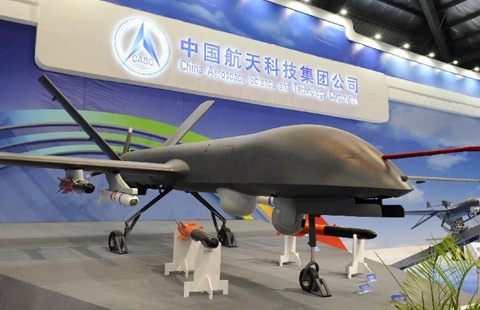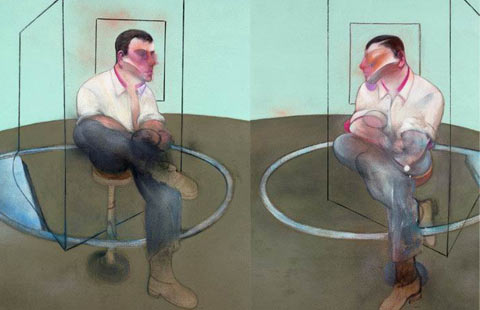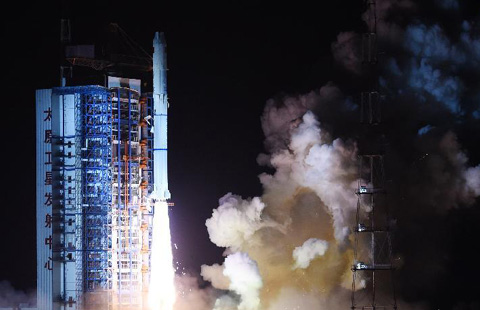No signals heard from comet lander Saturday
Updated: 2014-11-15 20:06
(Agencies)
|
||||||||
BERLIN - The European Space Agency received no signals from the Philae lander Saturday morning during a scheduled effort to establish communication, the mission chief said.
Paolo Ferri, ESA's head of mission operations, told The Associated Press, that the Rosetta orbiter did not get any signals from the lander on comet 67P/Churyumov-Gerasimenko.
ESA on Friday ordered a rotating operation to pull the lander out of a shadow so that solar panels could recharge the depleted batteries.
Even if that operation was successful, it may take days or weeks until the batteries of Philae are strong enough to send signals again.
"We don't know if the charge will ever be high enough to operate the lander again,"Ferri told The AP ahead of the 1000GMT (5 a.m. EST) listening time.
"It is highly unlikely that we will establish any kind of communication any time soon, but nevertheless the orbiter will continue to listen for possible signals."
On Wednesday, Philae landed next to a cliff that largely blocked sunlight from reaching its solar panels.
The historic landing climaxed a 10-year journey aboard the Rosetta space probe. Since alighting on the comet, some 311 million miles (500 million kilometers) distant from Earth, the lander has performed a series of tests and sent back reams of data, including photos.
On Friday, the spacecraft was given commands to rotate itself to catch more sunlight and to drill a hole into the comet. ESA announced _ prematurely, it turned out - that the hole had been drilled 25 centimeters (10 inches) into the comet's surface
"We know that all the movements of the operation were performed and all the data was sent down,"Ferri said Saturday. "However, at this point we do not even know if it really succeeded and if it (the drill) even touched the ground during the drilling operation."
Material beneath the surface of the comet has remained almost unchanged for 4.5 billion years, so the samples would be a cosmic time capsule that scientists are eager to study.
Scientists hope the $1.6 billion (1.3 billion-euro) project will help answer questions about the origins of the universe and life on Earth.
One of the things they are most excited about is the possibility that the mission might help confirm that comets brought the building blocks of life _ organic matter and water _ to Earth. They already know that comets contain amino acids, a key component of cells. Finding the right kind of amino acids and water would be an important hint that life on Earth did come from space.
Scientists say they already have gathered huge amounts of data and are calling the first-ever comet landing a roaring success.
"Let's stop looking at things that we could have done if everything had worked properly,"flight director Andrea Accomazzo said Friday. "Let us look at things that we have done, what we have achieved and what we have on the ground. This is unique and will be unique forever."

 UAVs displayed at Zhuhai air show
UAVs displayed at Zhuhai air show
 Small e-commerce business owners dream big
Small e-commerce business owners dream big
 Most expensive Western arts Chinese splashed on
Most expensive Western arts Chinese splashed on
 China launches new remote sensing satellite
China launches new remote sensing satellite
 Baby steps for nation in its golf infancy
Baby steps for nation in its golf infancy
 Across Americas over the week (Nov 7- Nov 13)
Across Americas over the week (Nov 7- Nov 13)
 Xi's wife takes Mexican first lady to PLA Academy of Arts
Xi's wife takes Mexican first lady to PLA Academy of Arts
 World's tallest man meets world's shortest man
World's tallest man meets world's shortest man
Most Viewed
Editor's Picks

|

|

|

|

|

|
Today's Top News
'Thousands stand to benefit' from visa accord
Xi starts busy schedule with G20
China army medics join Ebola battle
Chinese tourists look west
US spying scheme targets Americans' cellphones
Energy tops deals with Myanmar
The Waldorf's hefty price tag
China, US to build milk-powder plant in Kansas
US Weekly

|

|







